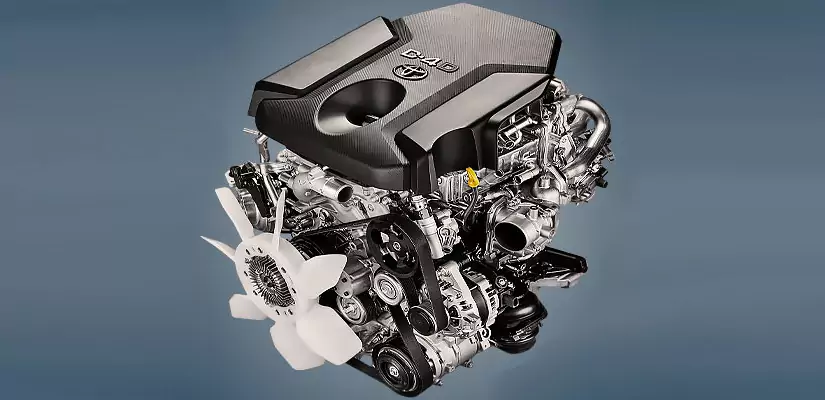Toyota Hiace: Diesel vs. Petrol – Which Engine Is Best?
Choosing between a diesel and petrol Toyota Hiace depends on your needs for performance, efficiency, operating cost, and typical driving conditions
Toyota Hiace Fuel Type Overview
Fuel Types Available:
-
Petrol
-
Diesel
Both engines are available in various regions, enabling buyers to select the one that best meets their operational needs, budget, and local regulations.
Full Spec Comparison: Petrol vs. Diesel
| Specification | Petrol Engines | Diesel Engines |
|---|---|---|
| Available Engines | 2.7L I4 (2TR-FE), 3.5L V6 (7GR-FKS) | 2.8L I4 Turbo (1GD-FTV), 3.0L D-4D Turbo |
| Power | Up to 207kW (278hp) | Up to 130kW (177hp) |
| Torque | Up to 351Nm | Up to 450Nm |
| Transmission | Manual/Automatic | Manual/Automatic |
| Avg. Fuel Consumption | 7–10km/L | 8–11km/L (up to 30mpg mixed) |
| Fuel Tank Capacity | 65–75L | 65–75L |
| Emission Compliance | Higher CO₂ emissions | Lower CO₂, better NOₓ control |
| Seating Capacity | Up to 15 | Up to 15 |
| Payload Capacity | Comparable, varies by trim | Comparable, varies by trim |
| Top Speed | Up to 170km/h | Up to 130–170km/h |
Fuel Consumption Comparison
| Engine | Fuel Consumption | Use Case |
|---|---|---|
| 1TR-FE | 9.5 L/100km | City, light cargo |
| 1KD-FTV | 7.5-10 L/100km | Heavy load, mixed use |
| 1GD-FTV | 7.0-8.5 L/100km | Most efficient, long haul |
Engine Models: Detailed Pros, Cons, and Maintenance Tips
| Engine | Pros | Cons | Maintenance Tips |
|---|---|---|---|
| 1KD-FTV | Robust, reliable, strong torque, long lifespan | Louder, moderate fuel, potential injector issues | Frequent oil/filter changes, monitor injectors, use quality diesel |
| 1TR-FE | Quiet, low maintenance, good efficiency, reliable | Lower power/torque, less suited for heavy work | Regular oil changes, timing chain needs little service |
| 1GD-FTV | Highest efficiency, high torque, low emissions | Complex, DPF/EGR issues, newer, higher cost | Strictly follow interval services, use low-ash oil, monitor DPF/regen cycles |
Pros and Cons by Fuel Type
Petrol Hiace
Pros:
-
Quieter and smoother engine operation.
-
Lower purchase cost compared to diesel variants.
-
Easier cold starts and less engine vibration.
-
Often preferred for urban, short-distance, or light-duty use.
Cons:
-
Lower torque at low RPM vs diesel, which can affect hauling heavy loads.
-
Higher fuel consumption for frequent, long-distance driving.
-
Typically higher CO₂ emissions.
Diesel Hiace
Pros:
-
Higher torque at low RPM for better heavy-load pulling.
-
Superior fuel economy — often the top choice for commercial use.
-
Longer engine life expectancy, especially in fleet/taxi applications.
-
Lower running costs due to improved diesel engine efficiency.
Cons:
-
Noisier and rougher than petrol engines.
-
Higher purchase price, though this can be recouped over time via fuel savings.
-
More expensive to maintain due to the presence of sophisticated emission systems (DPF, etc.).
-
Diesel engines may be restricted in some cities due to emission regulations.
Key Features (Both Petrol & Diesel Models)
-
Seating: Up to 15, depending on body style.
-
Safety: ABS, multiple airbags, VSC, traction control.
-
Infotainment: Android Auto/Apple CarPlay, Bluetooth, touchscreen.
-
Comfort: Rear AC vents, adjustable seats, ample cargo space.
-
Convenience: Sliding side doors (both sides), remote entry, cruise control.
-
Performance: RWD, large cargo/towing capabilities.
-
Versatility: Panel van, minibus, and commuter trims; various roof heights.
Most Common Questions on Hiace Fuel Types
1. Which Hiace fuel type is best for business?
-
Diesel. For high-mileage businesses (taxis, delivery, buses), diesel models offer superior fuel efficiency and durability.
2. Which fuel type is more reliable?
-
Both are reliable when serviced, but diesel engines typically last longer in commercial use due to robust construction.
3. Are petrol Hiace models cheaper?
-
Yes, petrol variants usually cost less to buy and maintain initially.
4. Is diesel slower or less powerful?
-
Diesel engines provide more torque, especially at low RPM, which is better for heavy-duty work. Top speeds are comparable but petrol variants may accelerate faster.
5. Are there emission differences?
Diesel engines generally produce less CO₂ per kilometer but may emit more NOₓ. Modern Hiace diesels use DPFs and AdBlue to manage emissions.
Conclusion
Choosing between a petrol or diesel Toyota Hiace depends on your specific needs:
-
Choose diesel: If you need maximum fuel economy, often carry heavy loads, and prioritize long-term durability.
-
Choose petrol: If your routes are mostly urban, you want a quieter ride, or need a lower upfront cost.
The Toyota Hiace, regardless of fuel type, remains one of the most reliable and versatile vans on the market — trusted for decades worldwide.

